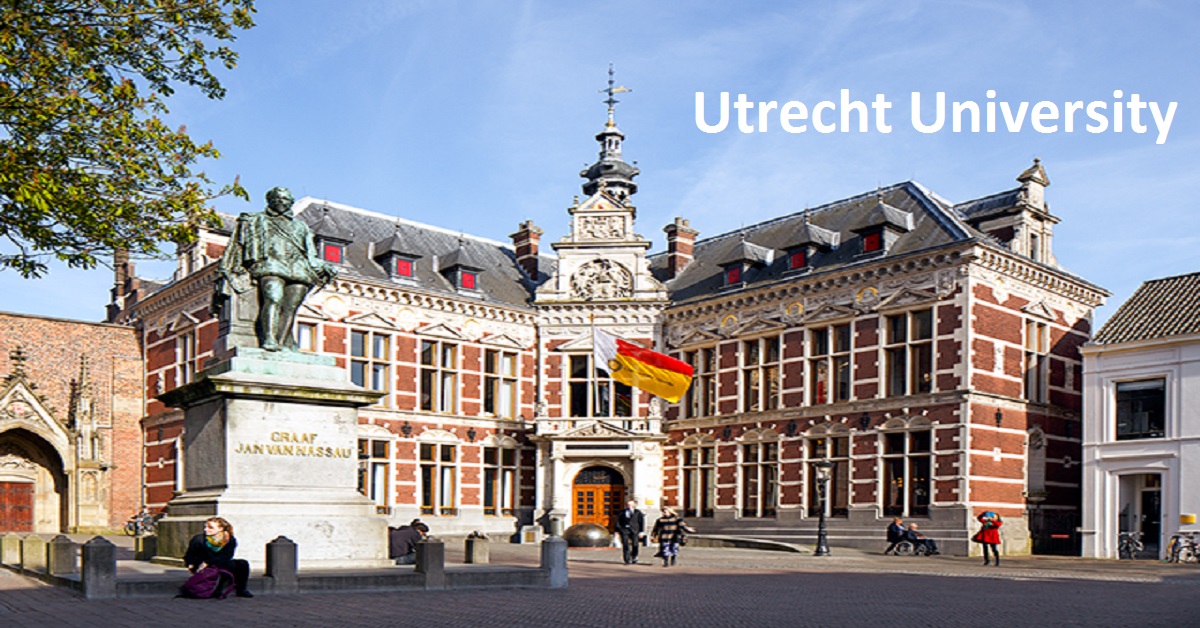Are you passionate about sustainability transitions and innovation? The Copernicus Institute of Sustainable Development at Utrecht University is looking for a PhD candidate to explore transformative pathways for a CO2-neutral steel sector. Join a dynamic research team and contribute to cutting-edge solutions for a greener future.
Your job
The Copernicus Institute of Sustainable Development at Utrecht University is seeking a motivated PhD candidate to contribute to cutting-edge research on the transition to a green steel industry.
A world without steel is unimaginable, yet we need to produce this steel sustainably. The Groeien met Groen Staal programme (GGS) aims at making the Dutch steel sector CO2-neutral by 2050. Despite its environmental impact, steel is crucial to modern society and its development and plays a crucial economic role in the Netherlands. Transformation is necessary for the steel sector to continue to remain a key sector of the Dutch economy. Achieving ambitious environmental and social goals necessitates the development of innovative transformative pathways. This process requires multi-stakeholder collaboration and coordination at both the local and international levels (consider foreign ownership and competitive environments).
In this project we will apply the Mission-Oriented Innovation System (MIS) framework to analyse the entire problem–solution space to transition to a green steel value chain. This includes the whole ecosystem necessary to come to a climate neutral and circular steel supply chain (including stakeholders along the value chain as well as essential factors external to the steel value chain, like sufficient green hydrogen production). The ecosystem includes all direct stakeholders, both proponents and opponents of swift climate action, and the environment impacting innovation to a green steel value chain (e.g. R&D capabilities, policy making, NGOs).
In the project you will work with many stakeholders in the (green) steel value chain and beyond, and especially in close collaboration with other researchers at Utrecht University, Technical University Delft, Leiden University and University of Twente. Specifically, you will:
- conduct in-depth analysis of mission-specific innovation systems related to the transition to a green steel value chain;
- explore the societal problems and strategic incentives, and solutions and stakeholder roles;
- identify and map drivers, barriers, and opportunities within the innovation system;
- develop and validate intervention strategies to address systemic challenges and accelerate the transition;
- collaborate with stakeholders, including policymakers, businesses, knowledge institutions, and NGOs;
- publish high-quality academic papers in peer-reviewed journals and present findings at conferences;
- contribute to the broader research programme of the Copernicus Institute on sustainability transitions and circular economy.
Your qualities
This PhD project may be the right fit for you, if you have:
- a Master’s degree in innovation studies, sustainability science, industrial ecology, or a related field;
- strong analytical and research skills, with experience in qualitative methods;
- knowledge of innovation systems, sustainability transitions, political science, or circular economy (this is an advantage);
- excellent written and verbal communication skills in English and, preferably, Dutch;
- motivation to work in an interdisciplinary and collaborative research environment.
Our offer
We offer
- a position for one year, with an extension to a total of four years upon a successful assessment in the first year, and with the specific intent that it results in a doctorate within this period;
- a working week of 38 hours and a gross monthly salary between €2,901 and €3,707 in the case of full-time employment (salary scale P under the Collective Labour Agreement for Dutch Universities (CAO NU));
- 8% holiday pay and 8.3% year-end bonus;
- a pension scheme, partially paid parental leave and flexible terms of employment based on the CAO NU.
In addition to the terms of employment
laid down in the CAO NU, Utrecht University has a number of schemes and facilities of its own for employees. This includes schemes facilitating professional development
external link, leave schemes and schemes for sports and cultural activities external link, as well as discounts on software and other IT products. We also offer access to additional employee benefits through our Terms of Employment Options Model. In this way, we encourage our employees to continue to invest in their growth. For more information, please visit Working at Utrecht University external link.
About us
A better future for everyone. This ambition motivates our scientists in executing their leading research and inspiring teaching. At Utrecht University
, the various disciplines collaborate intensively towards major strategic themes
external link. Our focus is on Dynamics of Youth, Institutions for Open Societies, Life Sciences and Pathways to Sustainability. Sharing science, shaping tomorrow external link.
Utrecht University’s Faculty of Geosciences
studies the Earth: from the Earth’s core to its surface, including man’s spatial and material utilisation of the Earth – always with a focus on sustainability and innovation. With 3,400 students (BSc and MSc) and 720 staff, the faculty is a strong and challenging organisation. The Faculty of Geosciences is organised in four Departments: Earth Sciences, Human Geography & Spatial Planning, Physical Geography, and Sustainable Development.
More information
For more information about this position, please contact Prof. E. Worrell
at E.Worrell@uu.nl.
Candidates for this vacancy will be recruited by Utrecht University.
Apply now
As Utrecht University, we want to be a home
for everyone. We value staff with diverse backgrounds, perspectives and identities, including cultural, religious or ethnic background, gender, sexual orientation, disability or age. We strive to create a safe and inclusive environment in which everyone can flourish and contribute.
To apply, please send your curriculum vitae, including a letter of motivation, via the ‘apply now’ button.
The application deadline is 21 March 2025.
